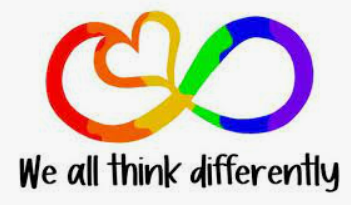Neurodivergence is a term that refers to neurological differences that falls outside of what is considered the “neurotypical” range of functioning. Examples of neurodivergent conditions include Autism, ADHD, Dyslexia, and Intellectual Developmental Disorder. The term “neurodivergence” is often used as a way to reframe and celebrate differences in neurological functioning as a form of diversity, rather than as a deficit or disorder. It can be used to encompass a wide range of conditions and experiences, and can be a useful way of acknowledging and valuing the unique strengths and abilities of individuals who may not think, learn, or communicate in the same way as neurotypical individuals.
There is a growing recognition that neurodivergence can bring with it a number of unique strengths and abilities. For example, individuals with autism may have an exceptional ability to focus on and excel at a particular task or subject, and may have strong attention to detail and problem-solving skills. Individuals with dyslexia or ADHD may have a strong ability to think creatively and outside the box.
In general, neurodivergent individuals may bring a unique perspective and way of thinking to problem-solving and decision-making, and may be able to approach tasks and challenges in novel and innovative ways. Neurodivergent individuals may also have a strong sense of empathy and understanding of others, and may be able to see and appreciate multiple points of view.
It is important to note that every individual is unique and will have their own unique strengths and abilities, regardless of whether they are neurodivergent or neurotypical. It is also worth noting that while neurodivergence can bring with it unique strengths and abilities, it can also come with its own set of challenges and difficulties. The key is to recognize and value the strengths and abilities of neurodivergent individuals, while also providing the necessary support and accommodations to help them succeed.
The Neuroaffirmative Movement is a related effort that seeks to challenge and change the way society views and treats neurodivergent individuals. This includes advocating for greater understanding and acceptance of neurodiversity, as well as working to remove barriers and create more inclusive and accommodating environments for neurodivergent individuals. The Neuroaffirmative Movement also aims to empower neurodivergent individuals to advocate for their own needs and rights, and to support them in leading fulfilling and meaningful lives.









